Address by His Excellency Atiku Abubakar, GCON, Waziri Adamawa, Vice President of Nigeria (1999 – 2007), Founder of the American University of Nigeria at the 17th Annual Founders Day Celebration of the American University of Nigeria, Yola, held at the Lamido Aliyu Musdafa Commencement Hall, AUN Main Campus, Yola, on Saturday, November 22, 2025, at 10:00 AM
Protocol
It is with great pride and profound humility that I stand before you today to commemorate the 17th Annual Founders Day of the American University of Nigeria. This day, anchored in our shared commitment to education and enlightenment, serves as not only a celebration of our journey thus far but also a powerful reminder of the relentless pursuit of excellence in education – a pursuit that has never been more critical than it is today.
As we gather in this hallowed hall, I invite each of you to look around and recognize the immense potential that resides in our vibrant community. Nigeria, a land of rich diversity and boundless opportunity, stands at a crucial crossroads. As we confront the formidable challenges that plague our educational system, it is essential that we harness our collective strength to act decisively for positive change.
But before we delve into the challenges within our education system; we must first acknowledge the myriad difficulties and threats that besiege the Nigerian state. We are grappling with the violence unleashed by the relentless Boko Haram religious fanatics, and the resulting pervasive security challenges that plague our nation. We are again contending with marauding criminal gangs and bandits who are terrorizing innocent communities, alongside bigoted separatists whose violence leaves scars on the fabric of our society. On another plank, ethnic and tribal jingoists are threatening our collective peace and creating divisions that further erode our social cohesion.
As daunting as these divisive challenges are, however, it needs to be pointed out that, perhaps, the most insidious threat of all comes not from the visible chaos of these armed groups but from a far deeper neglect of our education, health and human development services. This neglect was orchestrated by the invidious machinations of white-collar criminals who sit in our public offices, dressed in elegant suits, flowing or starched traditional dresses, working in our Public/Civil Services, National Assembly, Judiciary and the Executive. The crass disregard for education inflicted upon us by the current as well as the successive governments since 2007, has transformed what could have been a vibrant future into a bleak landscape. While we can struggle to confront the acute threats of violence and turmoil from the armed groups, the consequences of neglecting education, health and human services do not just threaten the present – they wreak havoc on our future.
It is this fact that compels me today, to urge everyone to focus attention on the state of our nation’s education. Our beloved country, poised with a youth population that boasts enormous promise, faces staggering challenges that threaten to undermine our most precious asset, our children. Currently, millions of children remain out of school, and among those who do enrol, many find themselves disillusioned, trapped in an outdated paradigm that fails to prepare them for the demands of an increasingly complex and competitive world. The classroom experience, already compromised, is further muddied by overcrowded facilities, a lack of resources, and educators who are under-supported.
This dire educational reality is not just an unfortunate circumstance; it poses a profound threat not only on the lives of our youths, but also on the society we are striving to build. The statistics are sobering; Nigeria holds the regrettable title of having the largest population of out-of-school children in the world. How is it that in a country rich in resources, cultural heritage knowledge and a myriad of talents, we find ourselves with such a dismal record? Every unattended classroom symbolizes a child with unfulfilled potential, a dream put on hold, and a talent that will remain dormant.
While the collective security threats we are facing today may seem daunting, but they pale in comparison to what awaits us because of our criminal neglect of education. The very act of allowing millions of children to fall into the abyss of ignorance is a crime against not just the living but against our future citizens, those who will emerge into a world where servitude and subjugation may be the only prospects they encounter. If we do not act now to revitalize our educational system, we doom an entire generation to lives devoid of opportunity, creativity, and the freedom to dream.
It is in the face of this very ugly and harrowing picture of our future that I shudder to reflect on the Federal Government’s decision to allocate over $23 billion towards the construction of the Lagos-Calabar Coastal Highway ($13B) and the Badagry-Sokoto Superhighway, ($9B) while the nation is gripped by this educational crisis. This reflects a grievous misallocation of priorities; an embarrassing disconnects between infrastructural developments and the pressing need for educational reform. What is even more appalling is that these projects were not preceded by the strategic planning and community engagement that our nation deserves, nor were they part of the ruling party’s campaign promises. Because they bypassed all the established channels of accountability and morality, their dogged pursuit reveals a troubling allegiance to the insatiable greed of those in positions of authority, who appear intent on loading our collective patrimony into their own pockets.
As we reflect on these decisions, we must ask ourselves: At what cost? What ramifications does this misdirection hold for our future? The immediate effect of this is clear: we are redirecting crucial funds that should enhance our educational system to strengthen an infrastructure project that cannot tackle the complex socio-economic challenges we are up against. In the long term however, the cost will be even steeper, as our nation’s stagnation in education leads to dwindling economic power, escalating inequality, and a generation of youth unprepared for the tasks that await them.
At a time when we should be positioning our country as a leader of thought, innovation, and progress, we instead risk becoming a society that cannot formulate solutions to the pressing issues we face. Modern education is no longer an option; it is a necessity, a powerful tool that can mitigate the proliferation of violence, poverty, and disenfranchisement. Education cultivates informed citizens who can rise against fanaticism and injustice, fostering a generation equipped to challenge the status quo and reshape the narratives of our nation.
If I were at the helm of governance, I will prioritize upgrading school infrastructures across the length and breadth of our nation. Imagine a Nigeria where every child has access to safe, well-equipped classrooms that foster creativity, critical thinking, and holistic growth. We would revise curricula to ensure our education system aligns with global standards while remaining responsive to local needs. Moreover, we would fortify healthcare delivery systems, ensuring that our citizens are healthy and thriving, because how can we expect children to learn if they are battling illnesses or malnutrition?
Amidst the government’s failures to fulfil its duties, the American University of Nigeria shines as a symbol of top-tier, non-profit education. We celebrate the significant achievement of establishing AUN, a gift from the Atiku family that transcends borders to serve humanity. Our ethos at AUN is firmly rooted in a devotion to serving others rather than seeking personal enrichment. Any profits generated by AUN will always be reinvested for the collective good, never for individual gain. Such profits will be channelled into providing opportunities, resources, and transformative education for our students.
Supporting the American University of Nigeria means supporting a movement – an invitation to all philanthropists, both at home and abroad, to join us in advancing the noble cause of education. Your support is not simply a financial contribution; it is an affirmation of your belief in the power of knowledge to heal, to enrich, and to empower. Supporting AUN is indeed supporting humanity, for education has the power to bridge divides, illuminate paths, and inspire generations.
As we celebrate the mission of AUN, we must also recognize the significance of our alumni community, the heartbeat of our university. Our alumni serve as envoys of this institution to the world, exemplifying the values and leadership skills that AUN imparted to them. They are a testament to the profound educational experience we offer, and their accomplishments in various fields illustrate the transformative power of an AUN education. As they engage in their ambassadorial duties, I implore all AUN Alumni to remember their responsibilities to their alma mater. Giving back to the university is not merely an act of gratitude; it is an entrenched tradition rooted in the American education system they have embraced at AUN.
While traveling throughout Nigeria and across the globe, I have been fortunate to encounter countless AUN graduates making waves in their respective domains, contributing solutions, and effecting positive change in their communities. Let them remember to give back to the institution that shaped them. By doing so, they will also be investing in the next generation of leaders and innovators who will get their lives started on the very same campus.
Ladies and Gentlemen gathered here, we extend this invitation to you all, asking you to join us in our quest to amplify the impact of our mission. Together, we have the capacity to lead a charge that dismantles barriers and embraces inclusive education as a human right. Together, we will build a Nigeria where no child is left behind, where access to knowledge awakens potential, where innovative thought is celebrated, and where the seeds of prosperity are planted in the fertile minds of our youth.
Let us rise to the occasion and reclaim our narratives. Our nation deserves the opportunity to thrive, and we can achieve this only through education, healthcare, and community engagement. Together, we shall forge a brighter future by embracing collaboration, unity, and a shared vision for excellence.
In reflecting on my own journey as a leader, I have seen, firsthand, the tremendous impact of education, not only as an individual pursuit, but more so, as a collective priority that can reshape societies. When education flourishes, so too do opportunities for economic growth, social cohesion, and national progress. The ripple effects of a strong educational foundation are profound; they empower individuals and uplift communities, engendering a sense of responsibility and a drive to give back to society.
Today, I call upon each of you to recognize and embrace the essential role of education as the cornerstone of societal progress. Education is not just a pathway to personal advancement; it is the very bedrock upon which stable societies are built. An educated populace is empowered to challenge inequality, eradicate poverty, foster innovation, and become actively engaged citizens who will shape the destiny of our nation.
Our commitment must be evident; we must advocate for government initiatives that prioritize substantial budget allocations for education and healthcare, engage with private sectors, and foster collaborations that reinforce the pillars of our educational institutions.
At the American University of Nigeria, we are in the forefront of this transformative vision, maintaining rigorous academic standards, creating an inclusive environment, and investing in student-centred learning experiences. However, our journey is far from complete. Our efforts must be a collective endeavour. As stakeholders within this community, we must rally together, students, faculty, staff, and alumni, to solicit and advocates for change that transcends our university’s borders.
I challenge each of you to become champions of this transformative vision. Engage in community outreach; advocate for policies that foster educational and healthcare reform; and invest your intellectual and financial resources toward innovations that cultivate the next generation of thinkers, leaders, and change-makers.
As we reflect upon our progress and the challenges that lie ahead, I cannot conclude this remarks without acknowledging the invaluable contributions from our friends and partners, both within Nigeria and from across the Globe. To all our supporters, collaborators, benefactors and parents from Africa, the United States of America, Europe, India, and the Far East, your unwavering faith in our mission has been nothing short of transformative.
Your dedication to our vision extends beyond mere financial support. It embodies a profound partnership that signifies hope for our students and communities. You have believed in the potential of the American University of Nigeria. Your help has allowed us to realize our goals, uplift lives, and plant the seeds for a better future. It is said that a nation’s wealth is measured not just by its material riches, but by the quality of its education, the well-being of its citizens, and the opportunity it provides for future generations. You have played an integral role in helping us measure up to that standard.
We have to pay homage to our friends and partners because we owe our rise and achievements thus far to their unyielding support and patronage. It is this backing that serves as the backbone of our success. But even more than our past, our future – a future where the vision of AUN flourishes and transforms lives – is wholly dependent upon the promise of your continued commitment and support. Together, we will write the next chapter of success and prosperity for Nigeria.
In conclusion, the American University of Nigeria is but a catalyst for change fuelled by real hope, clear vision, and the belief that through education, we can rewrite our destiny. Together, let us rise to this occasion, harness our collective potentials and work tirelessly to build a foundation that not only uplifts individuals and communities but ultimately transforms Nigeria.
Thank you.


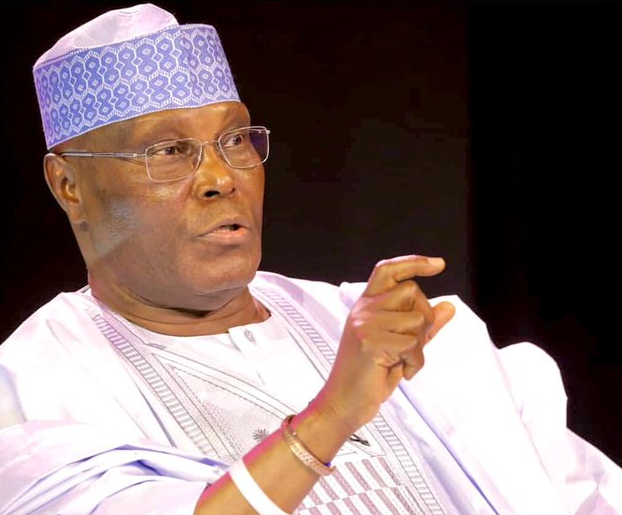

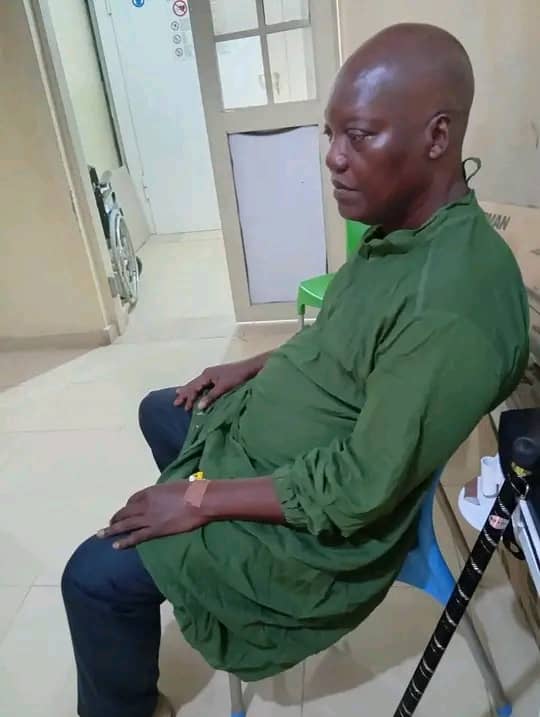

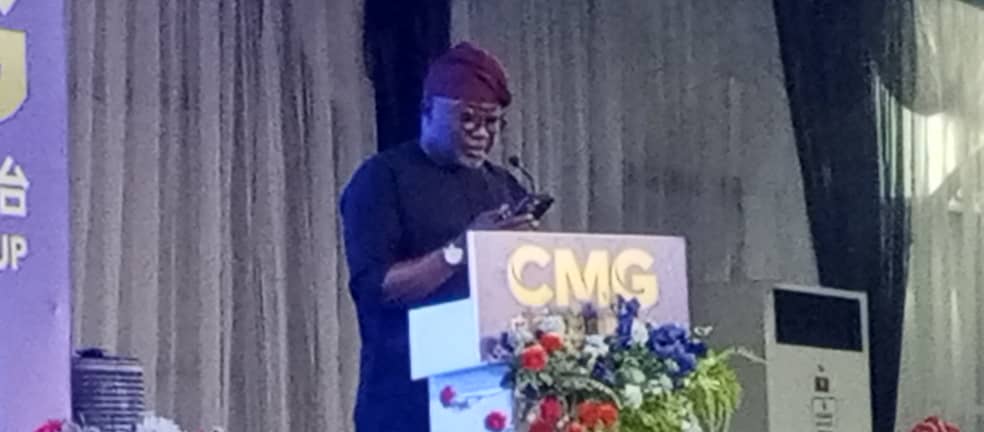
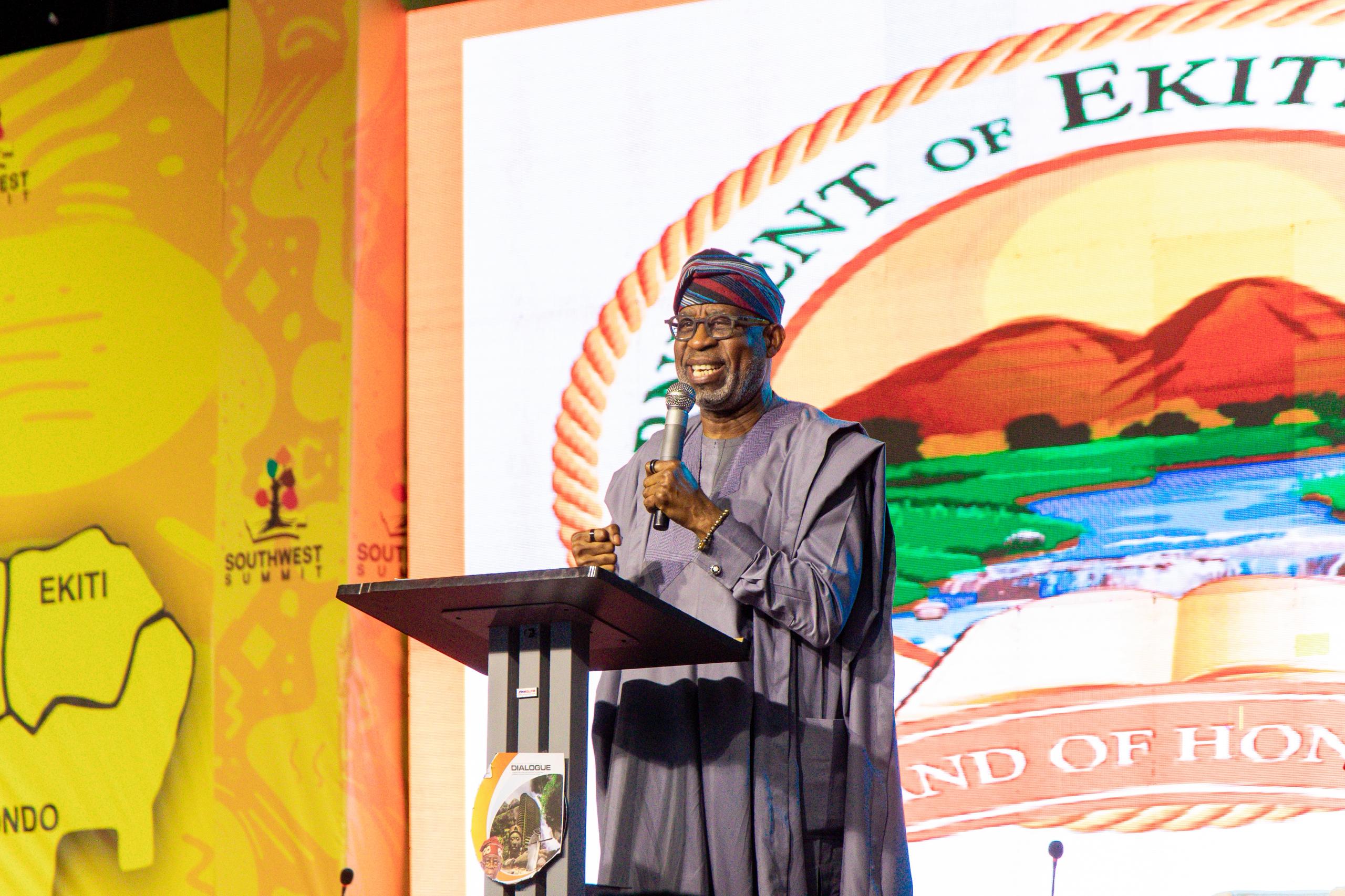
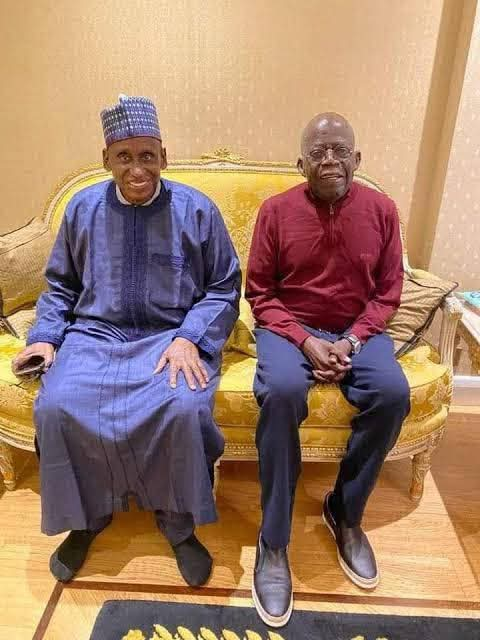
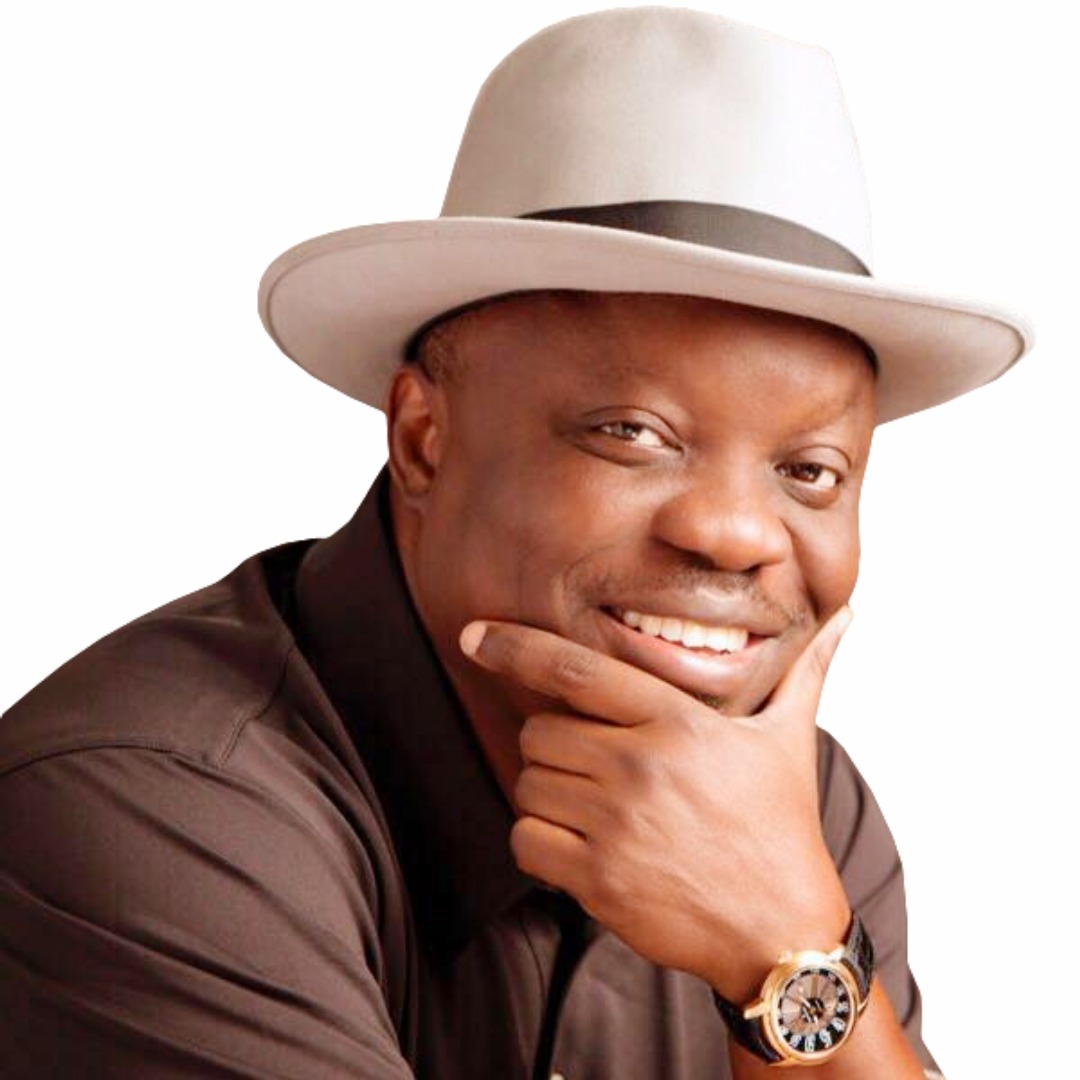
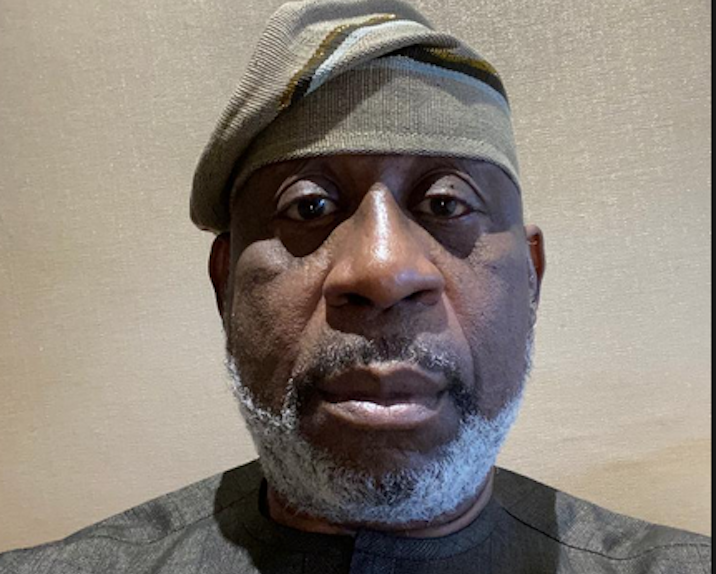
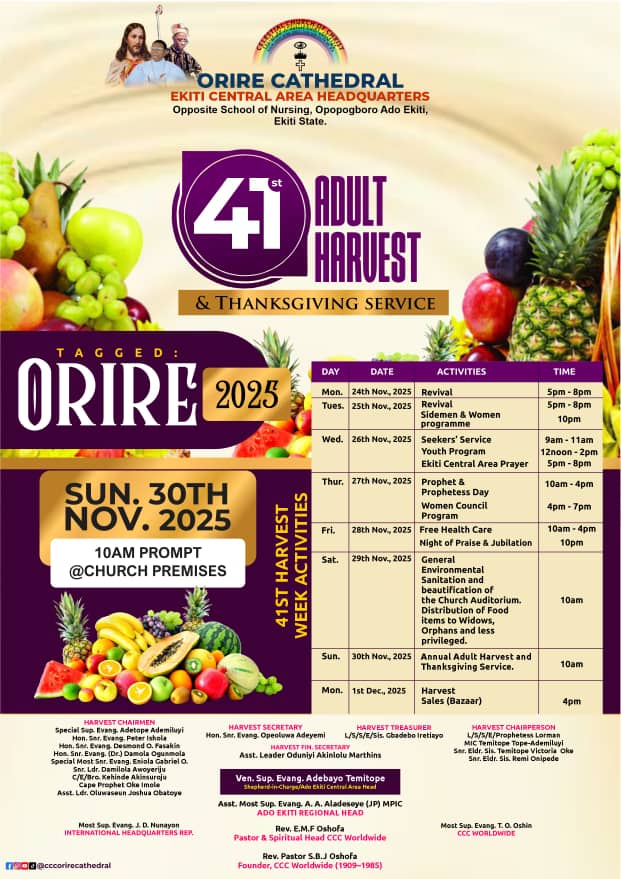


Leave a Reply